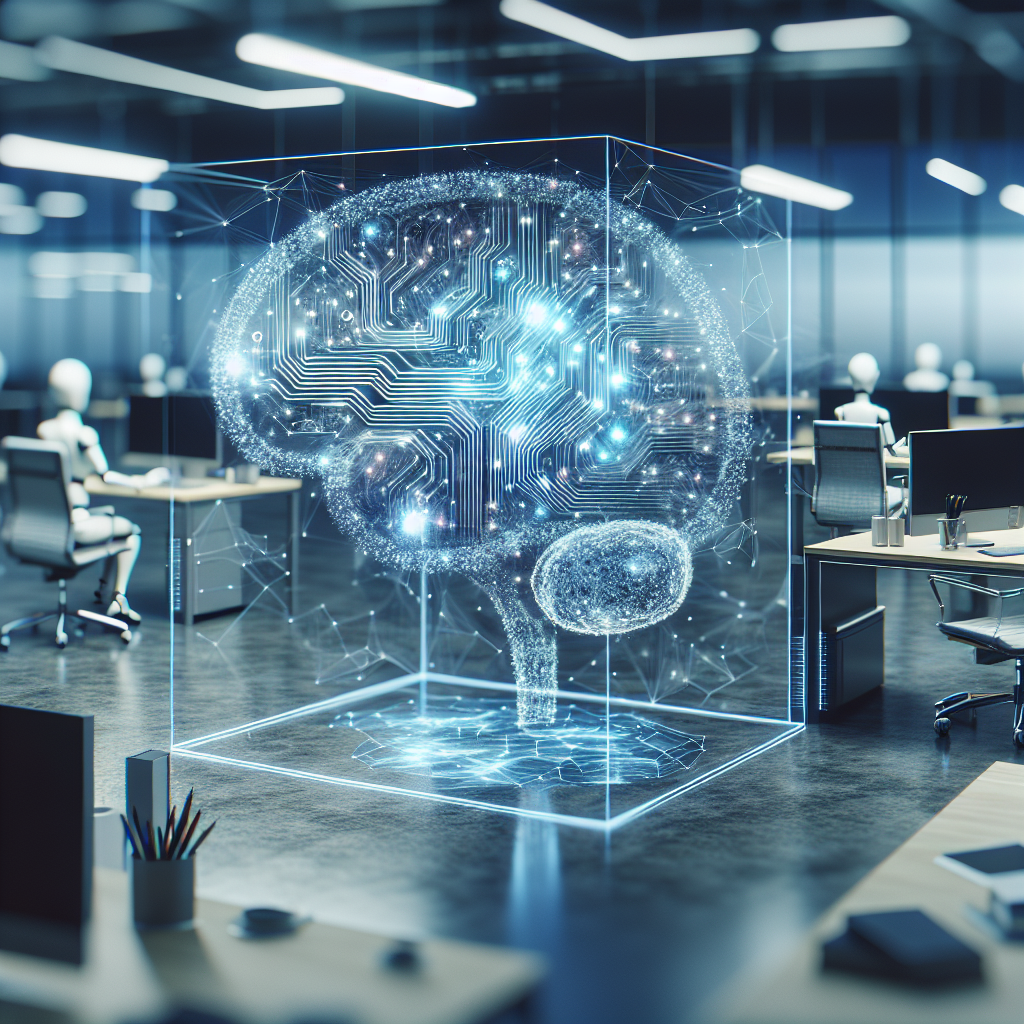The Future of AI Integration in the Workplace
Artificial Intelligence (AI) has been a hot topic in recent years, with the technology rapidly advancing and becoming more integrated into various aspects of our lives. One area where AI is poised to have a major impact is in the workplace. From automating routine tasks to improving decision-making processes, AI has the potential to revolutionize the way we work. In this article, we will explore the future of AI integration in the workplace and discuss the benefits, challenges, and implications of this emerging technology.
Benefits of AI Integration in the Workplace
There are numerous benefits to integrating AI into the workplace. One of the most significant advantages is the ability to automate routine tasks, freeing up employees to focus on more strategic and creative work. AI can handle repetitive tasks such as data entry, scheduling, and customer service, allowing employees to spend their time on higher-value activities that require human judgment and creativity.
AI can also improve decision-making processes by analyzing large amounts of data and identifying patterns and trends that humans may not be able to detect. This can help organizations make more informed decisions and stay ahead of the competition. Additionally, AI can help companies personalize their products and services to better meet the needs of their customers, leading to increased customer satisfaction and loyalty.
Another benefit of AI integration in the workplace is the potential for cost savings. By automating tasks and improving efficiency, companies can reduce labor costs and increase productivity. This can lead to higher profits and a competitive advantage in the market.
Challenges of AI Integration in the Workplace
While there are many benefits to integrating AI into the workplace, there are also challenges that must be addressed. One of the biggest challenges is the fear of job loss. Many people worry that AI will replace human workers, leading to mass unemployment. While it is true that AI has the potential to automate certain tasks, it is unlikely to completely replace human workers. Instead, AI is more likely to augment human capabilities, allowing employees to work more efficiently and effectively.
Another challenge is the ethical implications of AI in the workplace. As AI becomes more integrated into business processes, there are concerns about data privacy, bias in decision-making algorithms, and the potential for AI to be used for malicious purposes. Companies must be mindful of these ethical considerations and ensure that AI is used in a responsible and transparent manner.
Furthermore, there is a skills gap in the workforce when it comes to AI technology. Many employees may not have the necessary skills to work with AI or understand how it can be used to improve their work. Companies must invest in training and education programs to help employees develop the skills needed to effectively work with AI.
Implications of AI Integration in the Workplace
The integration of AI in the workplace will have far-reaching implications for organizations and employees. One of the key implications is the need for a shift in organizational culture. Companies that successfully integrate AI will need to foster a culture of innovation, collaboration, and continuous learning. Employees must be open to embracing new technologies and adapting to change in order to remain competitive in the evolving workplace.
Another implication of AI integration is the need for new roles and job functions. As AI automates routine tasks, employees will have the opportunity to take on more strategic and creative roles. This will require companies to reevaluate their workforce and create new job opportunities that leverage the capabilities of AI.
Additionally, companies must address the issue of data security and privacy in the age of AI. As AI processes large amounts of data, there is a risk of data breaches and misuse. Companies must implement robust security measures and comply with regulations such as the General Data Protection Regulation (GDPR) to protect customer data and maintain trust.
FAQs
Q: Will AI replace human workers in the workplace?
A: While AI has the potential to automate certain tasks, it is unlikely to completely replace human workers. Instead, AI is more likely to augment human capabilities, allowing employees to work more efficiently and effectively.
Q: What are the benefits of integrating AI into the workplace?
A: Some of the benefits of AI integration in the workplace include automation of routine tasks, improved decision-making processes, cost savings, and personalized products and services.
Q: What are the challenges of AI integration in the workplace?
A: Some of the challenges of AI integration in the workplace include the fear of job loss, ethical implications, skills gap, and data security and privacy concerns.
Q: What are the implications of AI integration in the workplace?
A: The implications of AI integration in the workplace include a shift in organizational culture, the need for new roles and job functions, and the importance of data security and privacy.
In conclusion, the future of AI integration in the workplace is bright, with the potential to transform the way we work and improve efficiency, decision-making, and innovation. While there are challenges and implications to consider, companies that successfully integrate AI will be well-positioned to thrive in the digital age. By investing in training, fostering a culture of innovation, and addressing ethical and security concerns, organizations can harness the power of AI to drive growth and competitive advantage.

